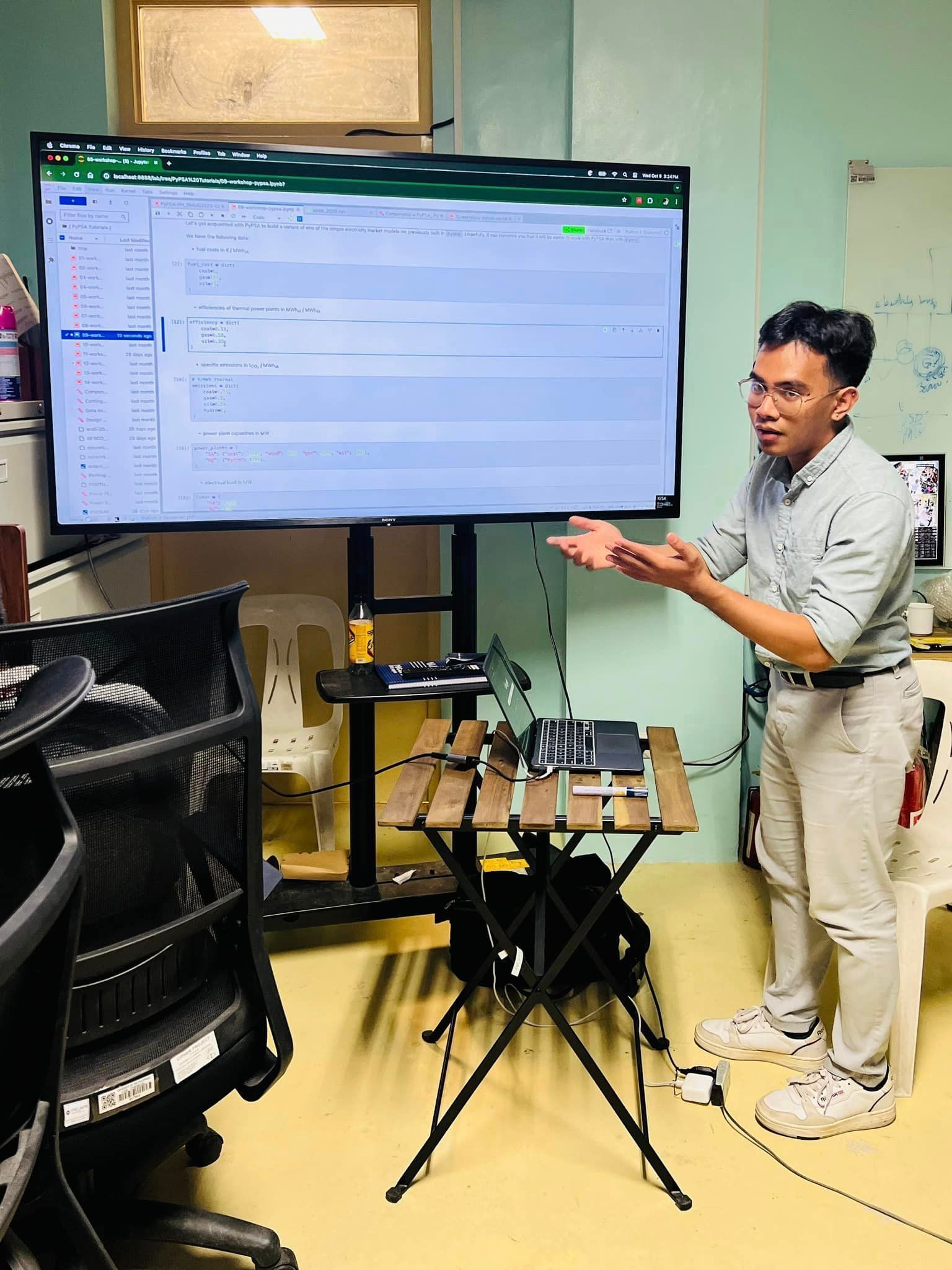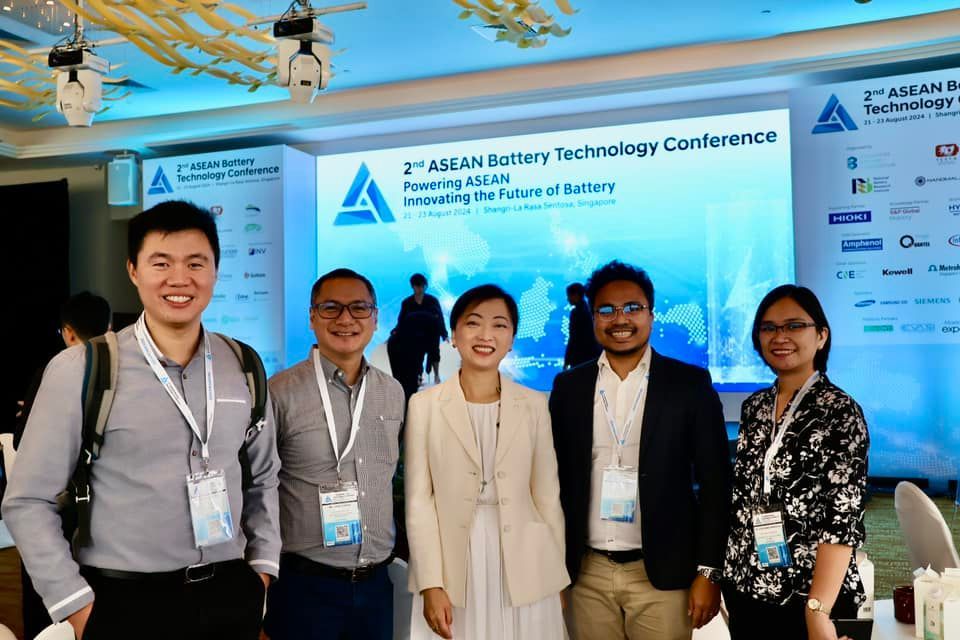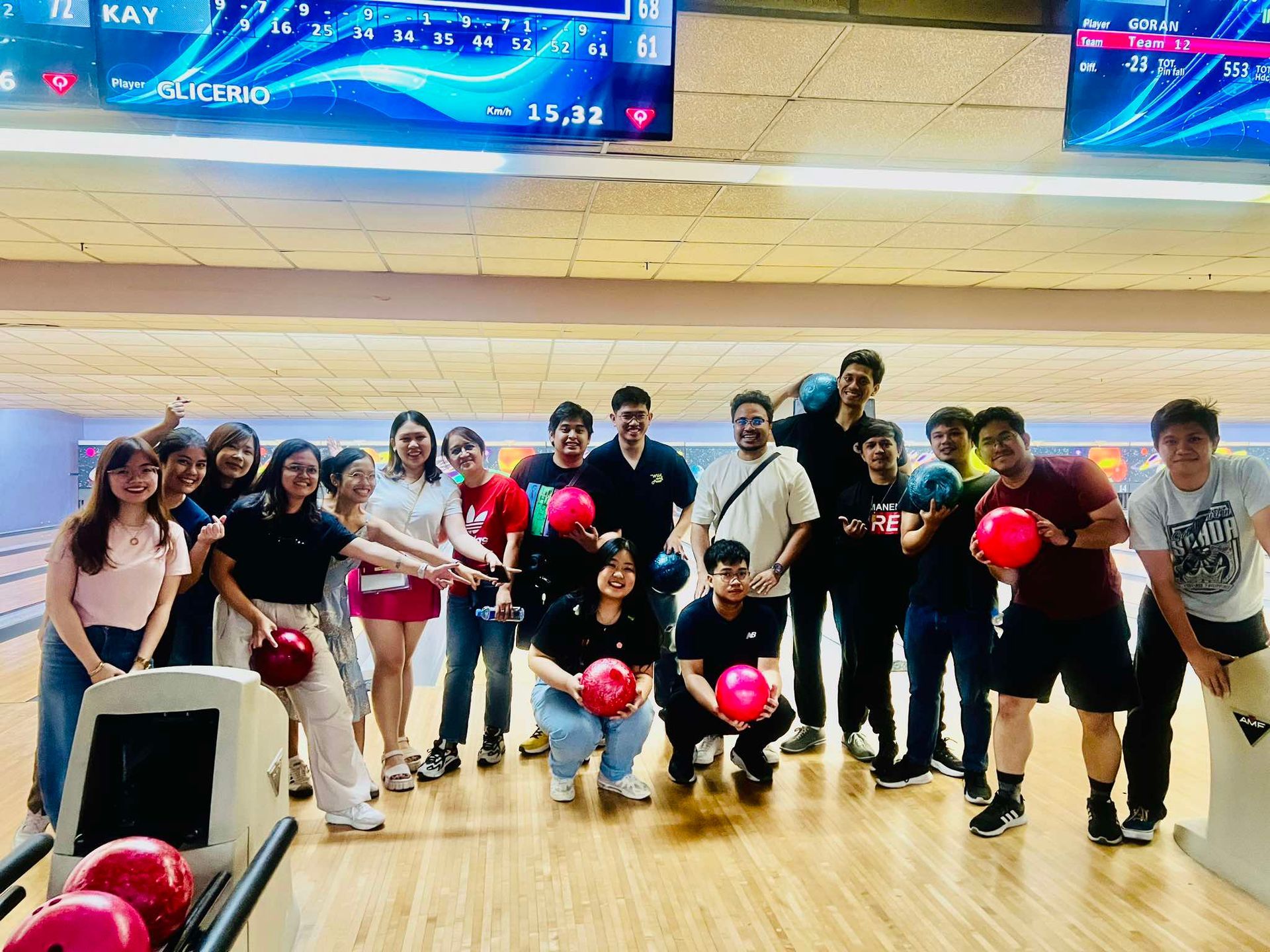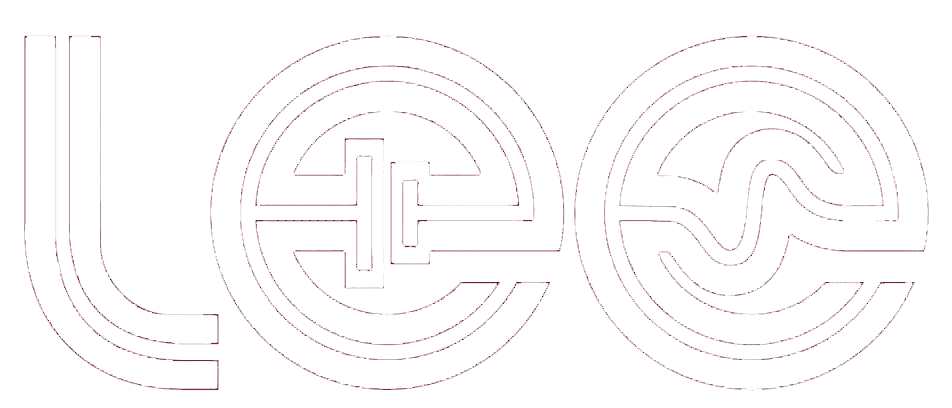Mr. Tomacruz successfully defends his master’s thesis
August 30, 2022
On August 23, 2022, Mr. Jan Goran T. Tomacruz, a member of the Laboratory of Electrochemical Engineering (LEE), successfully completed the defense of his thesis, "Machine Learning-accelerated Density Functional Theory (ML-DFT) screening of bimetallic transition metal surfaces based on single-atom adsorption energy predictions." His thesis adviser is Dr. Joey D. Ocon and co-advised by Dr. Allan Abraham B. Padama. Dr. Julie Anne D. Del Rosario served as the panel's chair, and Dr. Miguel Francisco Remolona served as the reader. This study was motivated with the urgent task to reduce fossil fuel consumption from the energy industry, the development of materials for electrochemical processes such as carbon conversion and fuel cell reactions have been increasing in importance. Noble transition metals are often regarded to have ideal catalytic activities for these reactions but are costly. Recently, computational techniques like Density Functional Theory (DFT) have been coupled with black-box Machine Learning (ML) regression methods for high-throughput adsorption energy prediction and material screening among bimetallic alloys, but now deal with challenges in interpreting structure-property relationships from these models. Interpretation methods are techniques that can provide model explanations without compromising on accuracy.
In this work, three fine-tuned regression models were trained to predict the adsorption
energies of carbon, hydrogen, and oxygen on 26 fcc(111) transition metals and 400 fcc(111) bimetallic alloys using features collected from online databases and DFT calculations on adsorbate-free surfaces. Model-agnostic interpretation methods were also tasked to evaluate global feature importance and local feature effects and to compare them with theoretical models.
Random forest regression and Gaussian process regression demonstrated the highest
accuracies in predicting adsorption energies but require improvements to be comparable with literature. In addition, interpretation methods were able to highlight the importance of the theoretical models for transition metals, and the feature effects in the regression models are consistent with their trends. Overall, this interpretable ML-DFT approach can be applied to transition metals and their derivatives for atomic adsorption energy prediction and model interpretation if data preprocessing and hyperparameter optimization are refined.

LEE research staff and graduate students participated in an in-house training and workshop on the Python for Power Systems Analysis (PyPSA) toolbox on October 9 and 23, 2024 . The sessions were led by Arizeo Salac (SRS 1, ElectriPHI), who returned from a six-month research sandwich program at the Reiner Lemoine Institute in Berlin, Germany , where he focused on data-driven decision-making and energy systems modeling. The training included a detailed discussion on energy systems modeling, with key topics such as data sources and the representation of energy systems using both conventional and renewable technologies. Participants received hands-on assistance with the software setup and installation, followed by simulation activities that showcased PyPSA’s capabilities in energy and power systems analysis. Mr. Salac also presented his baseline model of the Philippine energy system, which can be utilized for energy transition scenario planning. The event aimed to enhance participants' proficiency with open-source modeling tools, share best practices in modeling, and support their research in energy systems. Article by: Sophia Lunor

Prof. Joey D. Ocon, Dr. Julie Anne D.R. Paraggua, Dr. Lawrence Limjuco, and Giancarlo Sanglay were among the Filipino delegates at the 2nd ASEAN Battery Technology Conference , held from August 21 to 23, 2024 , at the Shangri-La Rasa Sentosa in Singapore. Themed "Powering ASEAN: Innovating the Future of Battery," the event was co-organized by key ASEAN associations from Singapore, Thailand, Indonesia, Malaysia, and the Philippines. They were accompanied by LEE member and graduate student, Giancarlo Sanglay and NextGen Project Chief Technical Specialist, Dr. Lawrence Limjuco, of the Advanced Batteries Center. The conference aimed to foster connections among researchers, engineers, and industry stakeholders within the battery and electric vehicle (EV) sectors. It provided a platform for knowledge exchange, technical discussions, and potential collaborations. Key topics included the development of the Battery and EV Roadmap for Southeast Asia, as well as government policies and regulations surrounding battery and energy storage systems (ESS) applications. Industry leaders and academic experts also addressed technological advancements in battery materials, financial support for innovations, and strategies for managing the end-of-life value chain of batteries. Prof. Ocon, who also serves as Co-Founder of Nascent Batteries, played an active role in the event by moderating a panel discussion on advancing ESS technologies in Asia. The panel featured representatives from prominent organizations, including EDP Renewables APAC, Green Tenaga Pte Ltd, and the Electricity Generating Authority of Thailand. This collaborative event underscored the region's commitment to advancing sustainable energy solutions and highlighted the critical role of ASEAN countries in driving innovation within the battery and EV industries. Article by: Lora Monique Sapanta

The Laboratory of Electrochemical Engineering (LEE) held a despedida party to bid farewell to two of its active members — Ms. Rosela Lazaro and Asst. Prof. Michael Castro — as they embark on a new chapter of their academic journey. The LEE members, along with their laboratory head, Prof. Joey D. Ocon, celebrated through a friendly competition at the Ever Gotesco Bowling Alley, Commonwealth Avenue last August 19, 2024. This also fostered camaraderie and strengthened the bond and friendship between the lab members. Ms. Lazaro will be studying MS in Environmental Science and Engineering at Gwangju Institute of Science and Technology, South Korea. Meanwhile, Asst. Prof. Castro will be pursuing a doctorate degree in Nuclear Engineering and Management at the University of Tokyo, Japan. He will be returning to UP Diliman to tend to his duties at the Department of Chemical Engineering. Indeed, ‘goodbyes’ are not the end. It marks a beginning of a new ‘hello’, a step closer to making dreams come true. To Sir Michael, ganbatte! To Sela, hwaiting! We are all rooting for you both! Article by: Lora Monique Sapanta


